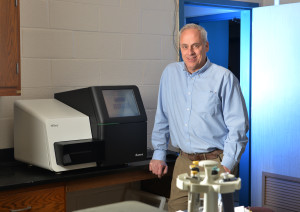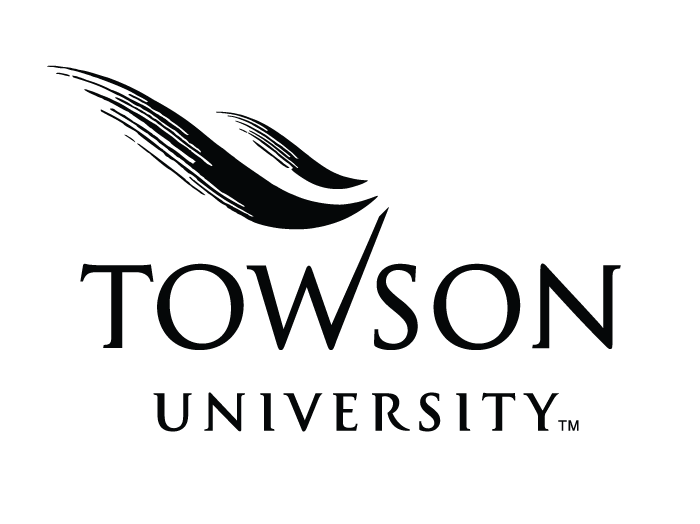It’s not much larger than a microwave oven or a desktop printer, but don’t be fooled. TU’s new DNA sequencer is about as fast and powerful as they come.
Thank Brian Masters, professor of biological sciences, and a National Science Foundation grant for the recent acquisition.

Masters received an NSF grant of $134,000 to cover the cost of the Illumina MiSeq desktop DNA sequencer.
Last year Masters applied for a NSF grant to cover the cost of a next-generation DNA sequencer. NSF awarded $134,000 to the university, and the instrument—an Illumina MiSeq desktop—arrived at Master’s Smith Hall lab in January.
“It’s up and running,” Masters says.
DNA sequencers, which became commercially available in the late ’80s, determine the precise order of nucleotides in a DNA molecule. DNA sequencing has had an enormous impact on medicine, biomedical research and many other fields.
The manufacturer touts the MiSeq as providing “access to more focused applications such as targeted gene sequencing, metagenomics, small genome sequencing, targeted gene expression, amplicon sequencing, and HLA typing.”
It supersedes a 10-year-old model that had once been considered state-of-the-art. “We’re still using the older instrument for smaller batches,” Masters says. “But computer capacity has exploded to such a degree that its utility is limited.
“When I first began sequencing DNA, it took a year to run 7,500 base pairs. The MiSeq can process 15 billion base pairs in 40 hours.”
Even at $1,000 per run, Masters says DNA sequencing is “hundreds of times cheaper than it was a few years ago.” He adds that because the MiSeq generates so much data, a single run will be all that’s needed for most projects.
Masters is particularly excited about applications in molecular ecology, his area of academic expertise. “There are so many ecological questions to be answered. For example, DNA sequencing can allow us to do a sophisticated analysis of the genetic basis for mate selection in birds.”
Projects might also include sequencing DNA from difference plant species to see how they evolved away from one another. Or sequencing bacteria genomes to see what mutations have occurred.
“Next-gen DNA sequencers take things to a whole new level,” Masters explains. “Having one at Towson will enable us to produce a goldmine of data for faculty and student researchers.”
